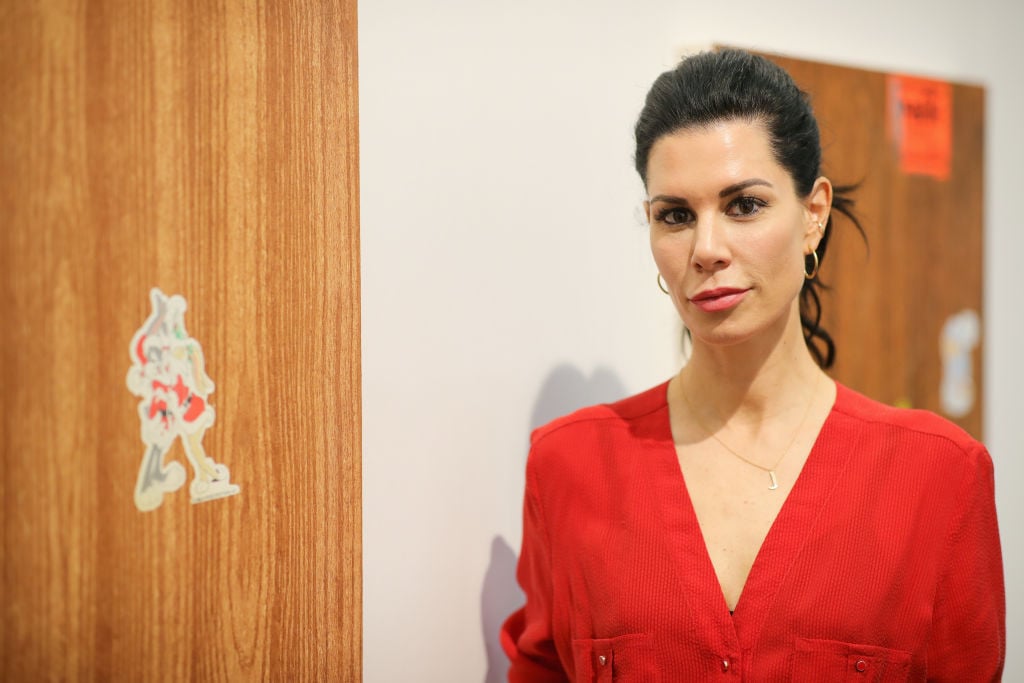
The art collector Julia Stoschek may be closing the Berlin location for her collection in 2022. The possibility of losing the esteemed collection is a new blow for Berlin following an exodus of art collections due to difficulties caused by the city’s uncompromising real estate industry.
The lease is up in two years at Stoschek’s large ground floor space on Leipziger Strasse, which the Düsseldorf-born collector had opened to a throng of visitors in 2016.
The billionaire video art collector has been actively looking for a future site for her collection in Berlin after it became apparent that the company that owns the property would not sell the building to her. According to a report in Welt on Sunday, May 10, the building’s owners had also asked for a significant rent increase in light of the prefabricated concrete building’s façade undergoing renovations. In a statement on social media shared a day after the first reports emerged, Julia Stoschek comments: “There are considerations in this direction” and that “there are still a few more crucial conversations to be had.”
This is the third collection to announce its closure or departure from Berlin in under a month. Just last week, collector Thomas Olbricht announced that his Berlin space, the Me Collectors Room, would close as he relocates to Essen. The esteemed Flick Collection, 1,500 works of art which have been on loan to the Hamburger Bahnof since 2004, is also being withdrawn in 2021 after it became clear that the landlord would demolish the building it was housed in, a gallery behind the historic museum. Udo Kittelmann, director of the Hamburger Bahnhof, described the loss of the Flick Collection as “very painful” in a statement to the press.
Julia Stoschek Collection’s location on Leipziger Strasse in Berlin. Photo: Schöning/ullstein bild via Getty Images.
According to the first report in Welt (the newspaper is owned by media conglomerate Axel Springer SE—Stoschek is married to its CEO Mathias Döpfner), the famous collector is “angry,” given the fact that she had invested millions in the renovation of her Berlin rooms and had spoken to all the various officials “in vain” about the possibility of finding an alternative to shutting down.
There are rumors that Stoschek is looking to Los Angeles, a city she says she loves, and where she has been spending increasing time in recent years. It is also where her friend Klaus Biesenbach runs MOCA. Artnet News reached out to Julia Stoschek to ask about the possibility of moving the collection to Los Angeles and to see what kinds of discussions the collection had with the city of Berlin, but did not hear back by press time. She later posted on social media that she is still in the decision-making process about leaving Berlin.
Despite the very real issues of rent hikes, buildings being demolished, and hardball real estate companies in Berlin, it is hard to blame gentrification and unfair treatment from public officials for the plight of the extremely wealthy people behind these esteemed collections. Nevertheless, Berlin will certainly miss Stoschek’s challenging and adventurous programming. The Taggespiegel describes Berlin politicians’ “delayed enthusiasm” for projects like Stoschek’s, adding that it took two years for Berlin’s Senator for Culture, Klaus Lederer, to step foot in her location. Artnet News reached out to Lederer’s office to ask what kinds of discussions had been had with the collector, but did not hear back by press time.
In a recent interview with Artnet News, the collector said she is working on digitizing the 850 works she owns, which are mostly video art or time-based media art. She has one of the most important private collections of art in Germany, including works by Arthur Jafa, Elaine Sturtevant, Wolfgang Tillmans, and Barbara Hammer.
[This article was updated on the evening of May 11 with a public statement from Julia Stoschek Collection’s social media, where the collector stated that she was still in the decision-making process.]